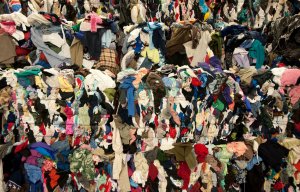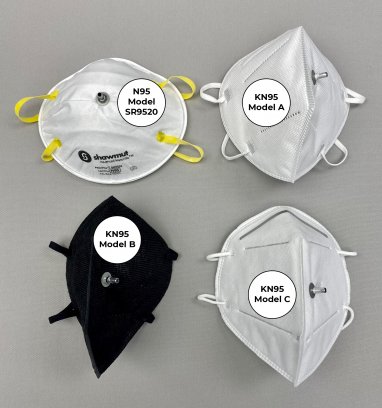
LCA reinforces need for recycling
Poor fit often prevents filters from fully performing their function.

26th January 2022
Innovation in Textiles
|
West Bridgewater, MA, USA
N95 filtering facepiece respirators approved by NIOSH (the USA’s National Institute for Occupational Safety and Health) may provide as much as 70 times better protection compared with Chinese-standard KN95 masks, according to study data released today by Shawmut Corporation, headquartered in West Bridgewater, Massachusetts.
The company completed a study using the ASTM Respirator Fit Capability standard to compare how well 95% filtration KN95 masks fit and seal against air leakage, which is essential for effective protection.
The idea that a properly vetted KN95 is any way comparable to an N95 is categorically wrong and dangerous
“These results are very concerning,” Shawmut said CEO James Wyner. “With so many people promoting the use of KN95 masks, we thought it was important to measure their fit. It turns out KN95 masks fit so poorly on most people that the high-quality 95% filter doesn’t fully perform its function. The idea that a properly vetted KN95 is any way comparable to an N95 is categorically wrong and dangerous, especially with a SARS-CoV-2 variant as infectious as Omicron. We felt it was critical to get the information out to the public.”
When tested side-by-side with a high-quality N95 mask, the KN95 masks exposed wearers to 25 to 70 times the level of small airborne particles relative to the N95 control, according to the study. In 12% of the cases, measurements indicated the KN95 offered no protection at all, with 100% leakage around the edges. In nearly half (47%), the wearer had at least 33% leakage around the edges. The N95, meanwhile, averaged far less than 1% leakage.
Measurements
The study comprised 800 individual measurements of the Shawmut Protex SR9520 Respirator and three high-quality KN95 respirators on a 25-person panel selected in accordance with the NIOSH bivariate test panel, which is designed to be representative of the US civilian workforce. The testing found that the KN95 masks in the study, which achieved at least 95% filtration on tests similar to those used by NIOSH for US respirator certification, demonstrated a tremendous amount of leakage. The net result is that much of the airflow in the KN95 design is around the edges of the facepiece, not through the filter.
“This is due to the loose fit that plagues the standard KN95 design,” said Larry Weldon, who oversees Shawmut’s NIOSH certification programme. “The differences in design between a KN95 and an N95 respirator are what account for the leakage. The ear loop design of the KN95 does not provide enough force to keep the edges of the mask tight against the face. The lack of a nose foam insert on the KN95 design does not prevent air leakage around the sides of the nose and upper cheeks. And lastly the flat-fold design with a stiff sealed seam down the middle of the face tends not to allow the very top and very bottom of the mask to conform tightly to the bridge of the nose and the bottom of the chin, opening gaps for air leakage.”
Standard
Shawmut also announced that it is adopting the ASTM F3407 Respirator Fit Capability Standard across all its current and future N95 product lines and will be publishing the study data and future product measurements on its website on an ongoing basis. Shawmut’s NIOSH-approved Protex SR9520 N95 Particulate Respirator is the first N95 respirator on the market to publish its fit capability results using this standard. The results of the Shawmut evaluation indicate a higher probability the Protex provides an effective seal on almost every face size.

Business intelligence for the fibre, textiles and apparel industries: technologies, innovations, markets, investments, trade policy, sourcing, strategy...
Find out more